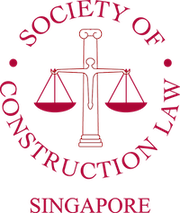Events Calendar
Hits : 292
In construction, as in almost every other venture or project, programmes are used to form the framework upon which projects are planned, executed and controlled. They are prepared in a variety of ways and formats depending on the nature of the aspect of a project which is the subject of the programme. Different programme styles and formats are required to serve the different objectives a programme is intended to control. It is a fact that delays to the completion of a project, or delays to the intermediate handover of parts of a project, often give rise to claims that have among the highest monetary values. This seminar will:
- review the types, styles and formats of these programmes and identify the purposes and individual limitations of each
- create a greater understanding of the means by which each type of programme in the construction industry is formulated, to explain the thinking, considerations and decisions that are needed in their preparation and to identify the persons that need to be involved in these processes.
- demonstrate how methods can determine the route of a critical path and how this path can be changed and elements of it modified or eliminated from criticality.
- review the common clauses related to programming in construction contract documents and their effectiveness, usefulness and practical applicability in administering a contract
- discuss the consequences and limitations of programme approval and comment on how the extent of such approvals should be limited by the experience and qualifications of those issuing these approvals
- deal with the reasons and necessity for modifying a programme and the rights of a contractor to so do
- consider in detail the means by which the contract programme should be used to monitor progress on a project and how the analysis of this monitoring should be used when adjudicating claims for extensions of time
- deal with the question of “Who owns Float?“ with suggestions as to how this controversial question can be dealt with in a manner that is fair to all parties.
Download Brochure HERE.
Location Supreme Court Auditorium, Level B2, Supreme Court Building (1 Supreme Court Lane)








